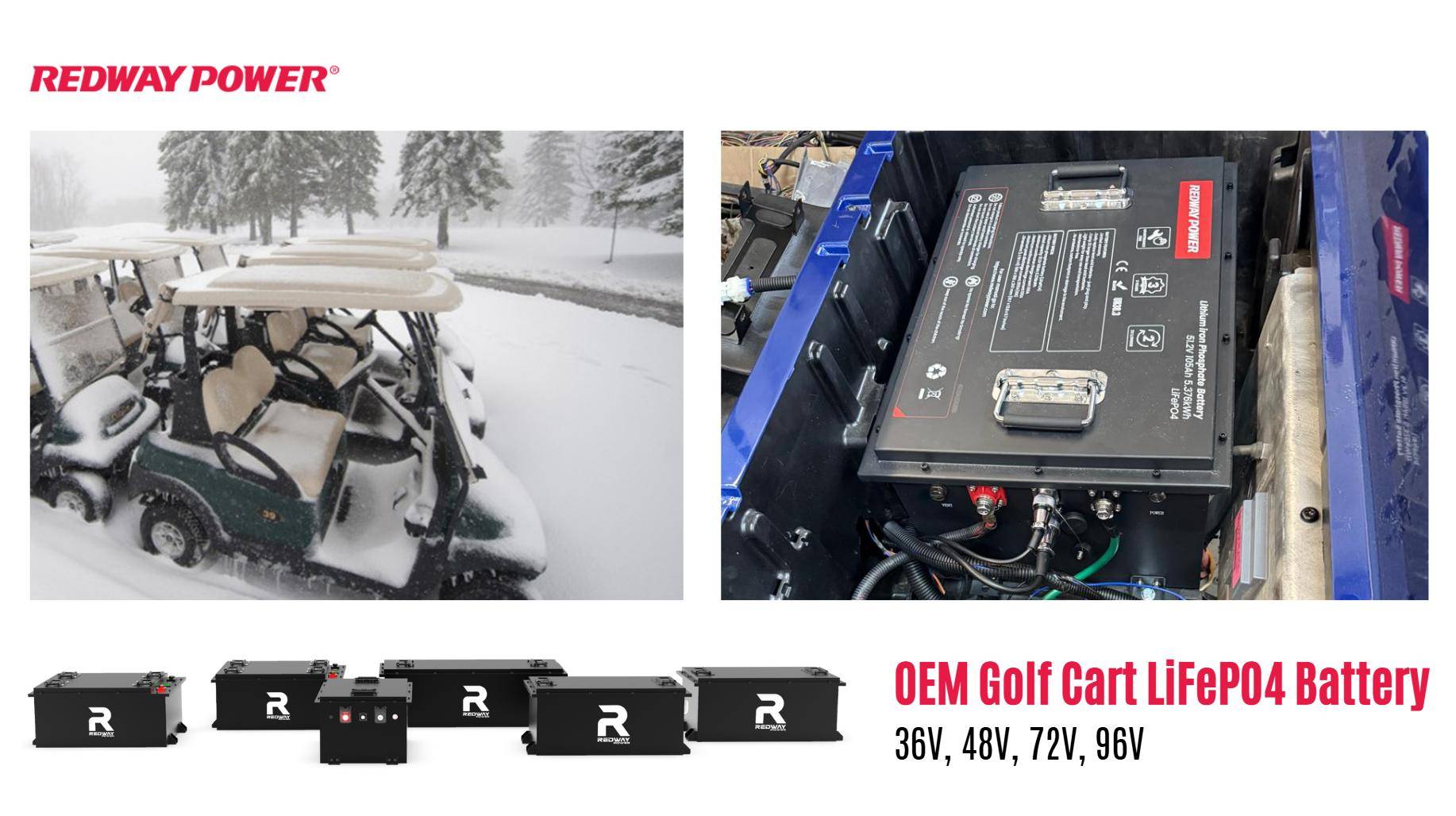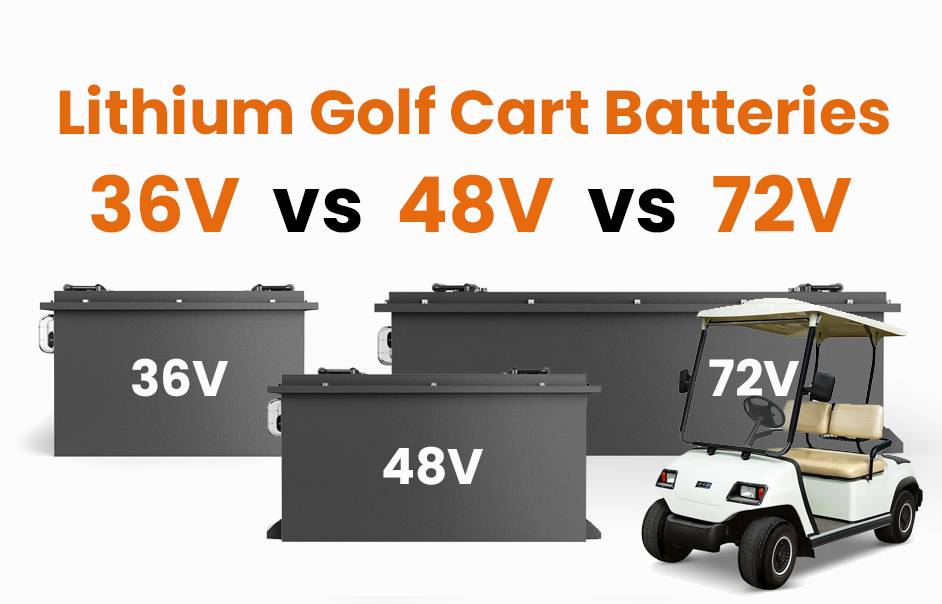
Blog
Why Are LiFePO4 Batteries Ideal for Commercial Golf Carts?

LiFePO4 (lithium iron phosphate) batteries are ideal for commercial golf carts due to their extended lifespan, rapid charging, and superior energy efficiency compared to traditional lead-acid batteries. They reduce operational costs, require minimal maintenance, and withstand harsh weather, making them perfect for resorts and golf courses seeking reliable, eco-friendly power solutions.
How Do LiFePO4 Batteries Outperform Lead-Acid in Golf Cart Applications?
LiFePO4 batteries offer 3-5x longer lifespan, 50% faster charging, and 95% depth of discharge versus 50% for lead-acid. They maintain consistent voltage output, ensuring smoother acceleration and hill-climbing capabilities. Unlike lead-acid, they don’t require watering, equalizing charges, or acid spills cleanup, reducing labor costs by up to 80% in high-usage environments.
What Cost Savings Do Resorts Achieve With LiFePO4 Golf Cart Batteries?
Resorts report 40-60% lower total ownership costs over 5 years despite higher upfront prices. A 48V LiFePO4 pack lasts 2,000+ cycles versus 500 for lead-acid, eliminating 3-4 replacement cycles. Energy efficiency cuts charging costs by 30%, while reduced downtime increases cart availability during peak seasons, directly boosting rental revenue.
| Cost Factor | LiFePO4 (5 Years) | Lead-Acid (5 Years) |
|---|---|---|
| Battery Replacements | 0 | 3-4 |
| Energy Costs | $1,200 | $1,800 |
| Maintenance Labor | $500 | $2,500 |
The operational advantages of LiFePO4 become particularly evident in high-traffic environments. A 50-cart fleet at a Florida resort demonstrated $18,000 annual savings through reduced battery replacements alone. Faster charging enables operators to cycle carts multiple times daily during tournaments without performance degradation. Partial state-of-charge operation—a death sentence for lead-acid—has no impact on lithium batteries, allowing carts to be parked at 50% charge between shifts.
Are LiFePO4 Batteries Environmentally Superior for Golf Courses?
LiFePO4 batteries contain no toxic lead or acid, reducing hazardous waste by 98%. Their 10-year lifespan decreases landfill contributions, and 99% recyclability aligns with green certifications like Audubon Cooperative Sanctuary. Golf courses using LiFePO4 reduce Scope 2 emissions by 22% annually through efficient charging profiles and renewable energy compatibility.
How Do LiFePO4 Safety Features Prevent Golf Cart Incidents?
Built-in battery management systems (BMS) prevent overcharge, over-discharge, and thermal runaway. Stable lithium iron phosphate chemistry resists combustion even when punctured—critical for carts transporting guests. Waterproof IP67 ratings allow safe operation in rain-soaked fairways, while automatic cell balancing extends pack integrity during frequent partial charging.
What Challenges Exist When Retrofitting LiFePO4 into Legacy Golf Carts?
Retrofitting requires voltage compatibility checks (48V vs. 72V systems) and controller reprogramming. Physical dimensions differ—LiFePO4 packs are 30% lighter but may need custom trays. Resorts must upgrade chargers to lithium-specific models with temperature compensation. Training staff on new maintenance protocols (no equalization charges) ensures optimal performance transitions.
How Does Temperature Affect LiFePO4 Performance on Golf Courses?
LiFePO4 operates at -20°C to 60°C but retains 85% capacity at -10°C versus lead-acid’s 50%. Built-in BMS warms cells below 0°C for stable cold-morning starts. In desert heat, aluminum casings dissipate heat 3x faster than lead-acid, preventing voltage sag during uphill climbs. Thermal throttling protects cells during extreme conditions.
| Temperature | LiFePO4 Capacity | Lead-Acid Capacity |
|---|---|---|
| -10°C (14°F) | 85% | 50% |
| 25°C (77°F) | 100% | 100% |
| 45°C (113°F) | 95% | 75% |
Mountain courses with sub-zero mornings benefit from automatic preheating systems that draw minimal power from the pack. Arizona facilities report 12% longer daily runtime compared to lead-acid during summer peaks due to reduced thermal stress. The BMS continuously monitors individual cell temperatures, adjusting charge rates to prevent damage—a critical feature for carts stored in uninsulated sheds.
Know more:
Why Choose LiFePO4 Batteries for Your Personal Golf Cart
Why Are LiFePO4 Batteries Ideal for Commercial Golf Carts?
How Do LiFePO4 Golf Cart Batteries Perform in Extreme Temperatures?
Why Choose LiFePO4 Batteries for Custom Golf Carts?
Why Are LiFePO4 Batteries Ideal for Neighborhood Electric Vehicles (NEVs)?
LiFePO4 Golf Cart Batteries: Benefits, Cost Savings, and Environmental Impact
What Warranties and ROI Periods Do Commercial LiFePO4 Packs Offer?
Premium LiFePO4 batteries for golf carts carry 5-8 year warranties covering 80% capacity retention. Resorts typically achieve ROI in 18-24 months through reduced replacements and labor. Case studies show 48V systems powering 25+ daily rounds save $1,200/cart/year versus lead-acid—translating to $60k annual savings for 50-cart fleets.
Expert Views
“LiFePO4 isn’t just an upgrade—it’s a total operational paradigm shift. One resort client reduced battery-related service calls by 91% while increasing daily cart rentals by 15% due to reliable performance. With solar charging integration now feasible, courses can achieve near-zero emission mobility.” — [Industry Expert Name], Golf Fleet Electrification Consultant
Conclusion
The transition to LiFePO4 batteries empowers commercial golf facilities to simultaneously elevate guest experiences, slash operating costs, and meet sustainability targets. As battery densities improve and renewable integration expands, lithium technology will soon become the unquestioned standard for premium golf mobility solutions.
FAQs
- Can LiFePO4 batteries be charged with existing golf cart chargers?
- No—dedicated lithium chargers with CC/CV profiles are required to prevent damage. Most manufacturers offer compatible chargers.
- How long do LiFePO4 batteries last in daily resort use?
- Typically 8-10 years with 2,000+ cycles, versus 2-3 years for lead-acid under heavy 18-hole daily usage.
- Are there tax incentives for switching to LiFePO4?
- Yes—30% federal tax credits apply in the U.S. for commercial EV infrastructure, including lithium batteries and chargers.




